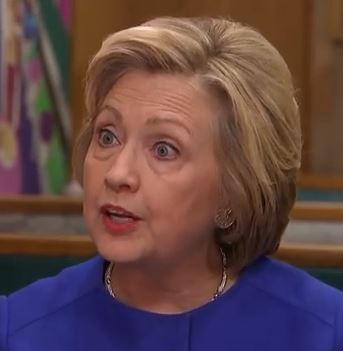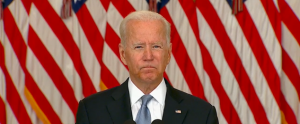
The Washington Times: Donald Trump isn’t the only presidential front-runner this election cycle whose foreign policy views are sparking anger and unease in the rest of the world.
Despite — and in some cases because of — her four-year record as secretary of state, Democrat Hillary Clinton is coming in for a share of criticism from allies and adversaries alike, even if the level of vitriol doesn’t match some of the comments targeting her potential Republican rival for president.
The critiques aren’t always consistent. Some fear Mrs. Clinton represents a continuation of the Obama foreign policy that has fallen short, while others warn that on issues such as trade and the willingness to intervene militarily abroad she will break markedly with Mr. Obama.
“While Trump’s foreign policy seems random and unpredictable (he actually bragged about this), it’s hard to see how Clinton’s approach to war is much better,” columnist and press freedom activist Trevor Timm wrote this week in the liberal British newspaper The Guardian.
Noting Mrs. Clinton’s support for the 2003 Iraq War and the 2012 Libya operation, Mr. Obama’s surge in Afghanistan and a proposed no-fly zone over Syria, “her positions are often more militaristic than anyone else in the race,” Mr. Timm wrote.
China’s official Xinhua News Agency this week carried a long analysis critical of Mrs. Clinton’s record of support for U.S. military intervention in the Middle East, saying there was little sign she would reverse course if elected president.
“Clinton has proven several times that her decision-making is flawed, extremely flawed,” Khaled Abdul-Jabbar, who teaches at Yemen’s Aden University, told Xinhua. “If she really means it, then why is she still committed to intervening and trying to change regimes and the political process in some Arab countries?”
Chinese blogger Tian Ya Hai Jiao Ke wrote this month that Mrs. Clintonhas a long record of rhetoric against China that plays well to her political base.
“From Clinton’s perspective, the angrier [Chinese officials] get, the better, because her whole purpose in saying such things is to elicit a Chinese reaction in order to pander to the American people ,” the blogger wrote. “You must know that we don’t feel like Clinton’s continuous attacks against China are strange, because attacking China is her pet project.”
Chinese critics note that Mrs. Clinton has spoken out for women’s rights in China and against Beijing’s aggressive push in the South China Sea, but some attacks have been unusually personal.
Chinese television host Sima Nan dismissed Mrs. Clinton as a “crazy old woman,” and a CNN report cited a comment on the popular Chinese social media platform Weibo: “If she can’t manage her husband, how can she manage America?”
Mrs. Clinton’s break with President Obama on the 12-nation Trans-Pacific Partnership trade deal blindsided many long-standing U.S. allies in the region. With Mr. Trump strongly denouncing existing U.S. trade pacts and the TPP, free trade forces in Asia say they have no champion in the White House race.
“If both candidates are looking backward in the trade deal, how can the United States exert political leadership in the region?” an unidentified “high-ranking official” in the Japanese Foreign Ministry told The Japan Times.
No reset in Russia
Russia, which has welcomed Mr. Trump’s questioning of the NATO alliance and his professed willingness to work with President Vladimir Putin, may be one country where Mrs. Clinton is clearly not the first choice. The former first lady and senator is closely connected with the “reset button” on relations with Moscow early in her tenure as secretary of state, a policy that both sides now see as a failure.
Foreign affairs analyst Vladimir Mikheev, writing on the news site Russia Beyond the Headlines (rbth.com), said Mr. Trump may not be able to reverse the anti-Russian bias of the American foreign policy establishment but “Trump’s treatment of NATO as a costly enterprise with little benefit to the U.S. is a welcome change of tune.”
Arguing that Mrs. Clinton represents more of the same in U.S.-Russian relations, he said, “There is a fair chance that America might change for the better under the billionaire businessman, with Trump possibly bringing into U.S. government bodies professionals with no links either to the ‘missionaries’ from the Democratic camp or the ‘neoconservatives’ from the Republican side.”
In Israel, Mr. Obama’s prickly relations with Prime Minister Benjamin Netanyahu and questions about Mr. Obama’s nuclear deal with Iran are coloring perceptions of the U.S. presidential race. A TNS/Teleseker poll released Sunday found that a plurality of Israelis (42 percent) think Mr. Netanyahu would get along better with Mr. Trump than with Mrs. Clinton. Just 32 percent said Mrs. Clinton could work better with the conservative Israeli leader.
Even so, 68 percent of Israelis say they view Mrs. Clinton favorably, compared with 43 percent for Mr. Trump.
Writing in the Israeli newspaper Haaretz, columnist Asher Schechter argued this year that, paradoxically, Mrs. Clinton would be bad for Israel because of her long record of unconditional support for the Jewish state.
“For nearly 20 years, Clinton has never allowed herself to be truly critical of Israel,” he wrote, “despite Israel’s descent into an increasingly undemocratic ethnocracy. In that, she had enabled and even encouraged self-destructive behaviors and elements that have effectively killed the two-state solution, and are now threatening Israel’s security and democracy.”
There is little question that European allies of the U.S. would tend to favor Mrs. Clinton, a known commodity, over the unpredictable Mr. Trump. But even there, some of Mrs. Clinton’s policies are causing unease.
As secretary of state, Mrs. Clinton was one of the architects of the Obama administration’s “pivot to Asia,” placing greater emphasis and assets on China and rising powers across East Asia at the expense of a traditional U.S. focus on Europe and the Middle East. Her 2011 article in Foreign Policy, “America’s Pacific Century,” is considered the blueprint for Mr. Obama’s overall diplomatic policy in the region.
Some in Europe fear the Continent’s importance in world affairs will only fall in a Clinton administration.
“Some Brits and Europeans hope that the departure of President Obama might mean that the U.S. places less emphasis on Asia and pivots back to the Atlantic. That is unlikely,” Financial Times columnist Gideon Rachman wrote this week. “Any U.S. president who looks at America’s strategic priorities is likely to come to conclusions similar to Mr. Obama’s. Hillary Clinton, his likeliest successor, is a firm believer in the ‘pivot’ to Asia.”
Some voices overseas find Mrs. Clinton uninspiring as a world leader — until they consider the alternatives.
Noting her ethical troubles, high poll negatives and a “largely wooden” campaign style, John Kehoe, Washington correspondent for the Australian Financial Review, said Mrs. Clinton “is very lucky to be in such a commanding position” because of the weaknesses of her potential rivals this cycle.
“She is more policy wonk than retail politician,” Mr. Kehoe wrote. “That may be a welcome change, given that politics has descended into any untidy 24/7 social media slanging match and policy reform has been painfully slow.
“Nevertheless, the aspiring inaugural female president may stumble into the White House without any great love for her.”




